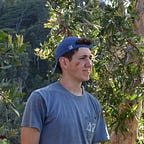A Reflection of the Writing Minor at Wake Forest
College provides many opportunities for growth. Whether that comes in the form of making new friends, trying new activities or taking new courses, new experiences are practically guaranteed for all those who go to college. At Wake Forest, Writing 111 (WRI 111) is a mandatory part of that experience, and each individual section is different. My expectations for the WRI 111 course I signed up for were not super high — I essentially picked my section at random during the course selection process.
As it turned out, my experience as a Writing Minor at Wake Forest was sparked by that specific course that I took my freshman year. It’s unlikely that I would have minored in Writing had I taken a different section. So, what specifically made my WRI 111 the springboard to my eventual involvement in the Writing minor?
This specific course, taught by Dr. Alisa Russell, focused more on the theory of writing than any other class that I had taken before. Never before had I been asked the questions that were being asked as part of the class. We dove deep into genre theory, a concept that I had never so much as given a thought.
In this course, we formed a definition of genre in writing, and looked at the written components that differentiate a piece of writing from other genres of writing (e.g. diction, use of appeals, content, audience, organization). From there, we built further understanding of genre upon that baseline by analyzing, critiquing, and innovating genres through our class assignments. Finally, we explored public genres in particular and spent time composing public genres ourselves.
Enthused by the pace and subject matter of that course, I registered for WRI 210 as part of my curriculum for the following semester. We explored how writing shapes and facilitates the work of academic disciplines, and explored the conventions of writing in different disciplines. For me, the class was a logical progression from WRI 111 — like that class, the focus on writing was rooted in the study of writing itself rather than using writing as a means of discussing other topics. It may not be a surprise, then, that this class was also taught by Dr. Russell.
As part of the course, we engaged in a public-facing genre study with an open-ended prompt. I chose to study the genre of company & organization logos by evaluating their evolution over time — the study included a survey component where respondents were asked to select their favorite logo from a collection of logos designed by a single company — the results allowed me to measure the effectiveness of logo changes over time, and what that meant for the genre of logos in the modern world.
The next semester, I enrolled in Dr. Russell’s WRI 306, which involved me in deeper and more nuanced conversations about the ways in which genre and the rhetorical choices of writing affects the structure of our institutions. Moreover, we gave additional attention to public-facing writing and the evaluation of writing as a tool for justice in the modern world. The class was fueled by discussions about assigned class readings — each reading focused on a different writing or discourse community, and the discussion in class would reflect the most pressing student takeaways from the reading.
Another cornerstone of my writing experience was the journalism course (JOU 270) that I took in the spring of my sophomore year. Whereas my previous writing classes surveyed various topics within the scope of our curriculum, the journalism class was directed towards one specific genre and the discourse community surrounding it. Of course, the scope of the subject was wide enough that we had plenty to learn in class. The key assignments prompted students to write their own news stories, forcing us to develop an understanding of the conventions and expectations of news writing.
In my junior year, I took the Writing Capstone course, WRI 350, which offered more engagement with the study of writing. This culminated in an assignment that forced me to consider my own writing development at Wake Forest through the archival retrieval and analysis of my past work. Another assignment asked us to develop our own grant proposals for our “dream project” in the field of Writing Studies. Naturally, this involved a deeper look into grant proposals — including their conventions, structure, and purpose — which afforded me new insight into grant proposals as a genre.
With all of this said, I have no doubt that my experience as a writing minor at Wake is unique from other writing minors, because there is such a variety in the content of the courses that students in the writing minor can take. For example, my understanding of the theory of writing has improved far more than my understanding of, say, creative writing conventions. However, the flexibility of the minor allowed me to take the courses I most preferred, which centered around the more technical aspects of writing.
A big misconception of writing courses at Wake (and across the university system in general) is that they are overwhelmingly writing-intensive. When you think of what happens in a writing course, you may imagine loads of long, strenuous writing assignments. But, the reality of my experience is that the assignments require you to write, but you’re not writing just to reach a word count. Many assignments prompt you to write about writing, because ultimately the study of writing is what the minor is all about to me.
